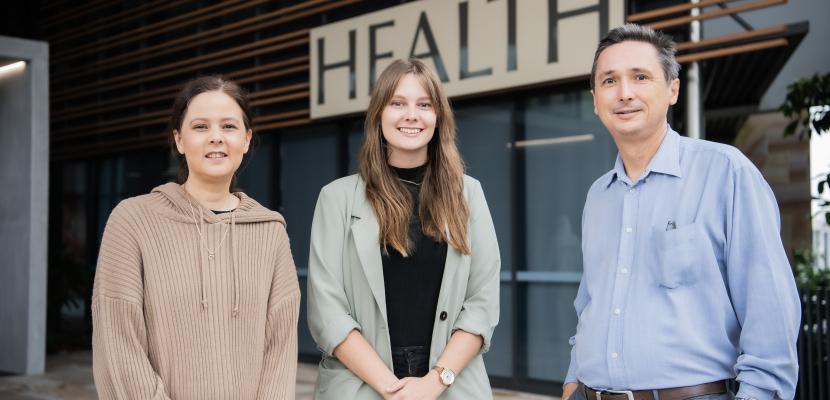
Data scientists are developing an artificial intelligence model to fast-track treatment for at-risk mental health patients.
The AI model is being designed for use in emergency departments and will quickly analyse patients’ triage notes, cross-referencing them with thousands of historical cases to pick up patterns and make recommendations to doctors.
Bond University’s Professor Marcus Randall, Dr Candice Bowman and Carly Hudson have received a $100,000 grant from the Queensland Mental Health Commission to work on the project alongside the Critical Care Research Group (CCRG).
From 2022-2023, the Australian Institute of Health and Welfare reported 68,062 mental health-related presentations to emergency departments in Queensland, with a single-day peak of 254 presentations.
“It’s an incredibly busy and stressful environment and clinicians have to make critical decisions quickly and repeatedly,” Prof Randall said.
“We should never rely on machines to decide patient treatment, but we can get them to interpret vast amounts of data to make predictions that a human can’t.”
Prof Randall said emergency department triage notes were often difficult to understand as they are written by different clinicians, often using shorthand and acronyms.
“(The AI model) might predict an immediate risk, based on the patient’s history and suggest they be kept for future monitoring, or it might show that this person can go home but needs community monitoring or a follow-up phone call next day.
“The aim is to provide EDs with a supportive tool to help improve efficiencies.”
Prof Randall said he hoped the model would prevent people falling through the cracks in an overburdened healthcare system.
“We want to make sure that everyone who really needs care, based on their history, gets it.
“Hopefully our prototype system can be developed into something that is incorporated into routine practice.”
The model is being developed using anonymised data from The Prince Charles Hospital’s emergency department in Brisbane.
CCRG’s Clinician Research Lead Oystein Tronstad said the project builds on the group’s existing collaborative projects aimed at AI innovation in emergency departments, as well as intensive care units.
“As part of CCRG’s ongoing commitment to impactful clinical research, we’re proud to be working in collaboration with Bond University and Dr Faye Jordan and her team at The Prince Charles Hospital on this innovative project,” Mr Tronstad said.
According to the Australian Institute of Health and Welfare, 3249 Australians took their own lives in 2022.
In the first half of 2023, Queensland had the highest average monthly rate of ambulance attendances for suicidal ideation, and the highest average monthly rate of ambulance attendances for suicide attempts.
Support services: Lifeline 13 11 14 (text 0477 13 11 14). Beyond Blue 1300 224 636.